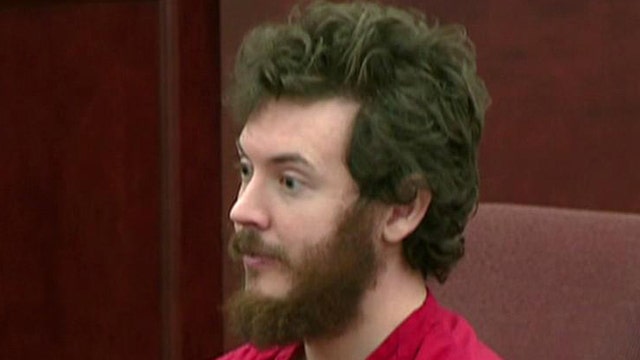DENVER – The defendant in the deadly Colorado theater shooting could be given "truth serum" under a court order issued Monday to help determine whether he is insane if he pleads not guilty by reason of insanity.
Suspect James Holmes could be required to submit to a "narcoanalytic interview" as part of an evaluation to determine if he was legally insane at the time of the July 20 shootings, Arpahoe County District Judge William Sylvester said.
A narcoanalylitic interview is a decades-old process in which patients are given drugs to lower their inhibition. Academic studies have shown that the technique has involved the use of sodium amytal and pentothal, sometimes called truth serum.
The prospect of such interviews that may ensue under such a plea alarmed defense attorneys, who filed documents opposing the technique.
Holmes, 25, is scheduled to enter a plea Tuesday to multiple counts of murder and attempted murder. He is charged with killing 12 people and injuring 70 at a midnight showing of "The Dark Knight Rises" in the Denver suburb of Aurora.
If Holmes pleads not guilty by reason of insanity, he would be examined by doctors at the state mental hospital.
In an advisory that Holmes would have to sign if he enters an insanity plea, Sylvester didn't specify what type of drugs would be used but said the examination could include "medically appropriate" ones.
Sylvester said Holmes also could be given a polygraph examination as part of the evaluation.
After reading a draft of the advisory, Holmes' lawyers objected, saying a narcoanalytic interview and a polygraph would violate their client's rights.
In the final version of the advisory, Sylvester said he had incorporated some suggestions from the defense and the prosecution, but he did not address the defense objections to a narcoanalytic interview and polygraph.
Karen Steinhauser, a former prosecutor who is a law professor at the University of Denver and a defense attorney, said she could not find any case law about use of the narcoanalytic interview.
"It comes up so rarely," she said, adding she knows nothing about it.
She noted the technique is clearly allowed by Colorado law.










































